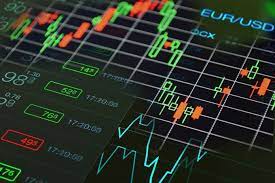The world of forex is fast-paced, exciting, and can offer substantial financial rewards. However, to be successful in this industry, traders need to have access to the right platforms, software, and brokers. Choosing a forex broker can be a daunting process for beginners and experienced traders alike. That’s why in this blog post, we’ll give you a comprehensive guide to forex broker, so you can make informed decisions for your trading needs.
Understanding Forex Brokers:
Before we dive into the qualities you should be looking for in a forex broker, it’s essential to know what they are. Forex brokers are financial service providers who allow traders to access the foreign exchange market. They act as intermediaries between traders and the market and make their money through spreads or commissions. So, the broker you choose can have a significant impact on your trading experience, so it’s wise to select one that is reliable, experienced, and trustworthy.
Key Qualities of a Forex Broker:
When selecting a forex broker, there are certain qualities you should prioritize over others. One of the most important things to look for in a broker is regulation. This means checking if the broker is licensed by the financial regulatory authority in your country. You should also check if the broker is registered with regulatory authorities in countries where they operate, as this demonstrates their level of transparency and commitment to ethical practices.
Another crucial quality to look for in a forex broker is good customer service. You want to be sure you can access support when you need it, whether that’s through email, phone, or live chat. A responsive and knowledgeable support team can make a significant difference if you encounter any issues with your account or orders.
Types of Forex Brokers:
Forex brokers can be classified into three primary categories. The first category is market-makers, who set their pricing by lining up buyers and sellers, essentially acting as a counterparty to their clients. The second type is ECN (Electronic Communication Network) brokers, who are generally considered to be more transparent as they match orders between traders. Finally, there are STP (Straight Through Processing) brokers, who operate like ECN brokers but with a lower minimum investment threshold.
Trading Platforms and Software:
A forex broker’s trading platform is an essential factor to consider since it’s where most of your trading activities will take place. You’ll want to look for platforms that are easy to navigate, offer real-time data, charting tools and enable you to use a variety of orders. Many brokers also offer mobile trading apps, which can be beneficial for traders on the go. As for software, different forex brokers offer different options for basic technical analysis, Automated Trading Software (ATS), plugin support, and proprietary indicators.
Costs and Fees:
Finally, it’s essential to compare the costs and fees of different forex brokers. As mentioned before, brokers make their profits by charging spreads or commissions. Therefore, you’ll want to look for brokers that offer competitive rates with transparent pricing. Additionally, some brokers may charge withdrawal fees for transferring funds from your trading account to your bank account. You should consider all these costs and fees altogether to determine which broker offers the best value for your money.
Conclusion:
To summarize, choosing a forex broker can be a complex and time-consuming process. However, spending time researching brokers can significantly impact your trading performance, so it’s worth doing your due diligence. Remember to consider regulatory compliance, customer service, trading platforms and software, and overall costs when deciding which forex broker to work with. Hopefully, this guide has helped you to better understand what to look for in a forex broker and make informed decisions about your trading journey.



